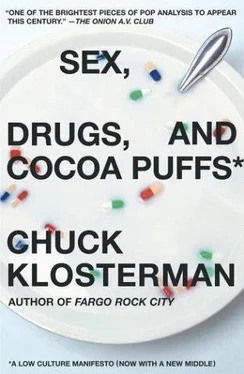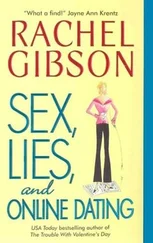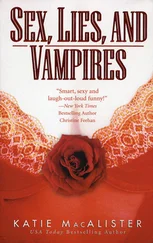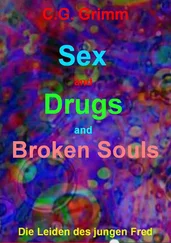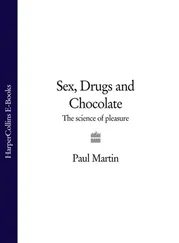Distrust the Proper People.
Über -idiotic people tend to think of the entire newspaper as one organism; they think that stories, columns, editorials, and advertisements are all exactly the same. Mildly intelligent people understand that there’s a difference between what’s on the front page and what’s on the OpEd page. However, only a select few are aware that most of what’s in a newspaper is either fact-plus-fiction or truth-minus-fact, which evens out to be just about the same thing.
Here’s what I mean: People get nervous when they read stories in newspapers, because they always think they’re being lied to or manipulated (this goes back to the aforementioned “agenda” presumption). They always think they’re not getting the whole story. Actually, they’re getting more than the whole story; they’re getting the whole story, plus a bunch of stuff that has nothing to do with anything.
Remember our thirsty reporter who was waiting for the mayor to call him back? Well, let’s say he finally leaves the office and swings by Stop-N-Go (maybe he wants another Dr Pepper). While walking toward the counter with his beverage in hand, a crazed loner walks into the store and shoots the convenience store employee in the face, killing him instantly. The reporter watches this shooting happen. The crazed loner then begins screaming like a maniac, and two cops rush in and apprehend him. Now, remember—the reporter sees all of this firsthand. And as a consequence, he calls up his editor on a cell phone and volunteers to write a story about the event. And he probably writes something like this…
RANDOM CITY, USA—The owner of a local Stop-N-Go was killed tonight in a brutal act of seemingly random violence. The alleged perpetrator was immediately taken into custody but firmly denies his involvement in the crime. “I never shot nobody,” said the alleged gunmen, who is also wanted for murder in seventeen other states.
Actually, I’m sort of exaggerating: I’m sure a copy editor would undoubtedly feel obligated to remove the word brutal . But by and large, this would be seen as a reasonable accounting of the events. This is why all reporters eventually go insane: Even if you see a guy shoot someone—in fact, even if a guy shoots you in the face, and you watch the bullet come out of the chamber of the .38 he’s holding—the event needs to be described as an “alleged” crime, and that alleged criminal needs to allege that he had no part in anything that allegedly happened.
Now, I realize this is essential to journalism, and I certainly don’t disagree with the principle behind that journalistic tradition. But these “essential” rules do create one rather embarrassing contradiction: Most serious news stories are peppered with information that is laughably false, and reporters are always fully aware of how false that information is. Newspapers are constantly quoting people who are openly lying, and almost every sound bite you hear in the broadcast media is partially false. And there’s nothing anyone can do about it. It’s not that the truth is being ignored; it’s just that the truth is inevitably combined with a bunch of crap that’s supposed to make news stories unbiased and credible, but really just makes them longer and less clear. The motivation for doing this is to foster objectivity, but it actually does the complete opposite. It makes finding an objective reality impossible, because you’re always getting facts plus requisite grains of “equalizing” fiction.
In his book Explaining Hitler, author Ron Rosenbaum applauds a group he calls the “First Explainers,” a collection of 1920s journalists who worked at publications like the Munich Post and risked their lives in order to illustrate the impending danger of the coming führer. He paints these guys as heroes. However, I’m not sure if modern reporters would even be allowed to perform that kind of watchdog function if a new Hitler-esque character emerged in the twenty-first century; he would probably just be referred to as a “charismatic, neoconservative upstart.”
As a result of this ham-fisted faux objectivity, skeptical news consumers often find themselves suspecting that a deeper truth can be found on the newspaper opinion pages, or through talk radio, or via egocentric iconoclasts like Bill O’Reilly or Michael Moore. The assumption is that—since these pundits openly admit their biases—you can trust their insights more. They display less guile, and you know where they’re coming from. But this is not true. You may find these people interesting and you may find them entertaining, but they offer nothing for anyone who doesn’t already agree with their espoused stance. George Will and Maureen Dowd are both more effective writers than I could ever hope to become, but all their political insights are unabashed propaganda, even when they happen to be right: They sometimes tell the truth, but they’re always subtracting facts. That’s what they get paid to do. They are paid to manipulate and simplify issues that are too complex for casual observers to understand independently. What makes them good columnists is their ability to present a version of the truth that somehow seems self-evident; they are urbane cult leaders. I will never understand people who complain that the media can’t be trusted, yet still inexplicably think they can learn something of value from Molly Ivins or Cal Thomas. Most of the time, political columnists and political commentators are trying to persuade you not to think critically about anything.
Sports Reporters Hate Sports.
Nobody realizes how much the people who write about sports despise the subject they write about. There is nothing they hate more. I know that seems paradoxical, and most of them would never admit it in public. But give them four drinks in a deserted tavern, and you will hear the truth: The people paid to inform you about the world of professional, collegiate, and high school athletics would love to see all sports—except for maybe the NCAA basketball tournament—eradicated from the planet.
What’s depressing is that this was not always the case for these people. Back when today’s sportswriters were still enthusiastic young fellows playing outside at recess, they loved sports. It was the only thing they loved, usually. They were the kind of kids who would watch a baseball game on TV and keep the official book, and they worshiped Brent Musburger and they memorized statistics from the World Almanac and they cried when Dwight Clark caught a pass in the back of the end zone to beat the Dallas Cowboys in 1981. Very often, the only important connection they had with their fathers was watching Monday Night Football . All their adolescence, these guys dreamed of a life where they could think about sports for a living. So they all went to college and got journalism degrees, and they all got jobs as sportswriters. And five years later, they all find themselves watching games from the press box and secretly wishing they were holding sniper’s rifles.
If you want to become jaded and bitter in the shortest period possible, become a sportswriter. You will spend your Friday nights trying to talk to high school kids who have nothing to say, and you will have to ask them questions until they give you a quote that proves it. You will spend your Saturday afternoons talking to college players who will earnestly discuss the importance of academics and school spirit two hours before they rape the first girl unluckiest enough to chug a GHB kamikaze. And if you become really good at your job, you will eventually get to live in hotels for weeks at a time, alongside millionaire pro athletes who—if not for their ability to perform one socially irrelevant act—would quite possibly kill you and steal your car. And you will still remember statistics from the World Almanac, but now those memories will make you mad.
Читать дальше
